
Gold standard clinical studies show that daily supplementation with Coenzyme Q10 in the form of ubiquinone can significantly reduce the duration of hospital stays and the number of admissions to hospital because of heart disease.
There is more and more good solid scientific evidence that Coenzyme Q10 supplements work against heart disease. In recent years, we have the statistically significant results from the KiSel-10 study (enrolling 443 elderly Swedish citizens) [1] and from the Q-Symbio study (enrolling 420 heart failure patients) [4]. Before that, we had the positive results from the Morisco study (enrolling 641 heart failure patients) [3]. And we have had the results from three published meta-analyses that have indicated a positive effect of Coenzyme Q10 on heart function [2,5,6].
Coenzyme Q10 randomized controlled studies done with ubiquinone
Altogether, there have been 36 small clinical trials of supplementation with a ubiquinone form of Coenzyme Q10. In 34 of the studies, the results were positive, showing beneficial effects in improving heart function in heart failure patients. Two studies have had neutral outcomes. The point to be made here is that the important Coenzyme Q10 research has been done with the original oxidized form of Coenzyme Q10 that is called ubiquinone.
No equivalent research studies done with ubiquinol
Since 2007, some producers of Coenzyme Q10 capsules have marketed the reduced form of Q10, called ubiquinol. They have made claims for ubiquinol’s absorption and effectiveness, but – a big but here – the thing that is lacking is the sort of documented research results that we have for the use of the ubiquinone form of Coenzyme Q10.
Emphasis on absorption and not on effect
The research that has been done with ubiquinol seems to be, mostly, laboratory studies and experiments conducted on mice and some human studies in which dubious comparisons of absorption have been done. There simply have not been studies of the health benefits of ubiquinol supplements that can be compared to the Q-Symbio study, the KiSel-10 study, and the Morisco study.
If we, as careful consumers, think about it, then, yes, absorption is important to us. We do want to know that the nutritional substance that we are purchasing will be absorbed. But, even more importantly, we want to see research results that confirm a beneficial effect of our Coenzyme Q10 supplement on our heart health.
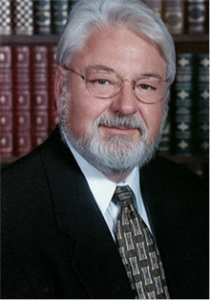
Dr. William Judy has done extensive research into the safety and absorption and health effects of supplementation with Coenzyme Q10. He remains dubious about marketing claims for the ubiquinol form of Coenzyme Q10 supplements.
Long-time Coenzyme Q10 researcher and consultant Dr. William Judy
Dr. William V. Judy, founder and president of the SIBR Research Institute, has been conducting research with Coenzyme Q10 for 45 years now. His research results based on human and laboratory studies and animal studies refute the marketing claims for superior absorption of Coenzyme Q10 in the ubiquinol form.
The ubiquinol absorption and bioavailability studies referenced in many marketing claims were performed in healthy elderly Japanese individuals, and, then, comparisons were made to bioavailability studies done in unhealthy Parkinson’s patients done some 10 years before the ubiquinol studies. This comparison was not a proper scientific comparison.
Dr.Judy’s studies show that there is no difference in the single dose absorption between ubiquinone and ubiquinol when the samples for ubiquinone are taken from the distal lymph duct and ubiquinol samples are taken from the blood plasma.
Dr. Judy’s studies have shown that orally ingested ubiquinol changes to ubiquinone when it is exposed to stomach acid and that, having been converted to ubiquinone, the orally ingested ubiquinol is absorbed as ubiquinone. His studies have shown that the ubiquinone is then converted back to ubiquinol as it slowly passes through the lymph to the systemic circulation.
Dr. Judy’s data
According to the data from Dr. Judy’s studies, it seems clear that the ubiquinol in the supplements that we can purchase will be absorbed in the form of ubiquinone and not in the form of ubiquinol. Regardless of whether we take our Coenzyme Q10 as a ubiquinol supplement or as a ubiquinone supplement, the Coenzyme Q10 in the supplement will be absorbed in the ubiquinone form and then converted to ubiquinol in the lymphatic system on its way to the blood.
Dr. Judy’s concern: CoQ10 supplements containing crystals
Over the years, Dr. Judy has seen too many Coenzyme Q10 preparations, both ubiquinol and ubiquinone preparations, that contain crystals, which means that the preparations cannot give a good absorption. The absorption cells in the small intestine cannot absorb crystalline Coenzyme Q10. The absorption cells can absorb only single Coenzyme Q10 molecules.
Present-day crystal-free Coenzyme Q10 products containing ubiquinone have a 5 to 8 percent absorption rate whereas present-day ubiquinol products containing Coenzyme Q10 crystals generally have less than 3 % absorption.
The crystalline Coenzyme Q10 raw material must be pre-heated and dissolved in vegetable oils before it is sealed inside the gelatin capsules. Moreover, it is important, Dr. Judy notes, that there is enough fat in the small intestine to serve as a carrier of the Coenzyme Q10 molecules to the absorption cells in the small intestine.
Conclusions
- There is solid evidence that some Coenzyme Q10 preparations using the ubiquinone form – the form that has been researched for 45 years now – are positively associated with heart health benefits.
- There is no solid evidence that Coenzyme Q10 in the form of ubiquinol – first introduced in 2007 — is as effective as the ubiquinol form.
- Both forms of Coenzyme Q10 are important to good heart health: ubiquinone for the process of cellular energy production and ubiquinol for antioxidant protection of cells and lipids.
- Coenzyme Q10 supplements in the ubiquinone form are safe, effective, and affordable.
- Coenzyme Q10 supplements in the ubiquinol form are safe but are frequently lacking in stability, are more expensive, and are unproven as to their health benefits.
Sources:
- Alehagen, U., Johansson, P., Björnstedt, M., Rosén, A., & Dahlström, U. (2013). Cardiovascular mortality and N-terminal-proBNP reduced after combined selenium and coenzyme Q10 supplementation: a 5-year prospective randomized double-blind placebo-controlled trial among elderly Swedish citizens. International Journal of Cardiology, 167(5), 1860-1866.
- Fotino, A. D., Thompson-Paul, A. M., & Bazzano, L. A. (2013). Effect of coenzyme Q₁₀ supplementation on heart failure: a meta-analysis. The American Journal of Clinical Nutrition, 97(2), 268-275.
- Morisco, C., Trimarco, B., & Condorelli, M. (1993). Effect of coenzyme Q10 therapy in patients with congestive heart failure: a long-term multicenter randomized study. The Clinical Investigator, 71(8 Suppl), S134-S136.
- Mortensen, S. A., Rosenfeldt, F., Kumar, A., Dolliner, P., Filipiak, K. J., Pella, D., & … Littarru, G. P. (2014). The effect of coenzyme Q10 on morbidity and mortality in chronic heart failure: results from Q-SYMBIO: a randomized double-blind trial. JACC. Heart Failure, 2(6), 641-649.
- Sander, S., Coleman, C. I., Patel, A. A., Kluger, J., & White, C. M. (2006). The impact of coenzyme Q10 on systolic function in patients with chronic heart failure. Journal of Cardiac Failure, 12(6), 464-472.
- Soja, A. M., & Mortensen, S. A. (1997). Treatment of congestive heart failure with coenzyme Q10 illuminated by meta-analyses of clinical trials. Molecular Aspects of Medicine, 18 SupplS159-S168.


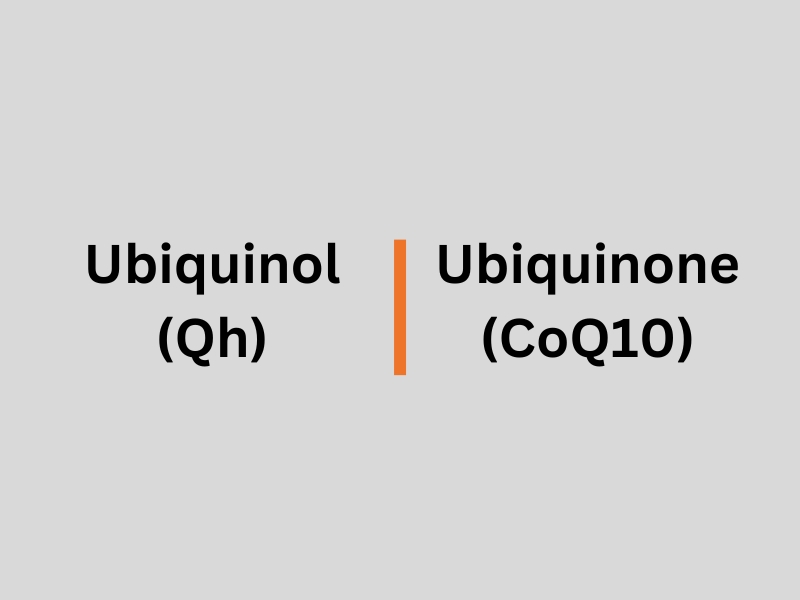

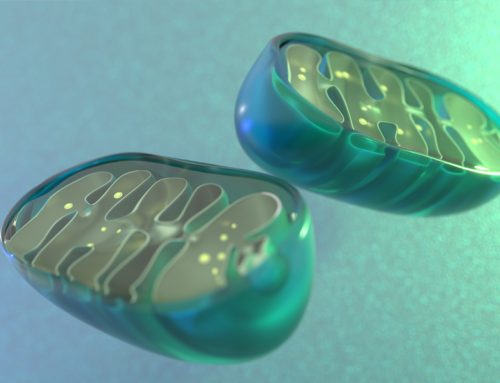
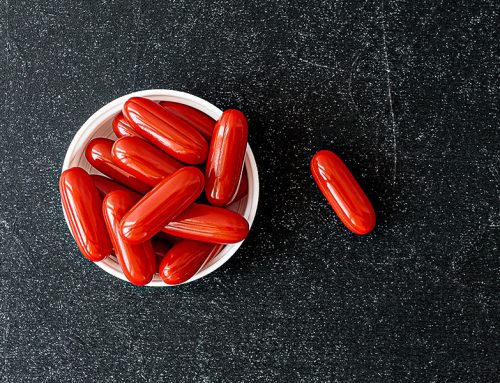


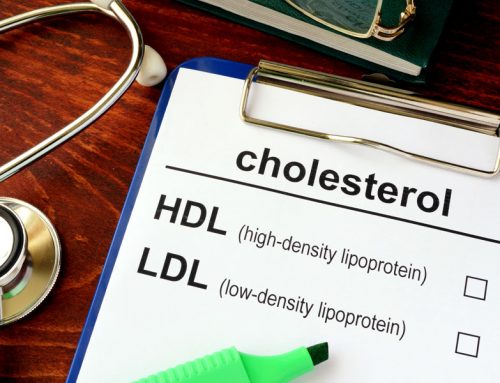
hi would like your input on lifextention foundation stating that the ubiquinol form is the better one to use and better absorb as well.
I do not understand why some retailers have marketed the ubiquinol form of CoQ10.
It is known to be an unstable form of CoQ10.
The comparisons that ubiquinol advocates point to are comparisons between different studies done at different times with different participant characteristics.
I prefer to wait for the results of a rigorous study comparing the absorption of the two forms head-to-head.
And, beyond the issue of absorption, I am interested in effect.
We have results from randomized controlled trials (Mortensen, Morisco, Munkholm)that show that the ubiquinone form of CoQ10 confers beneficial health effects.
What are your thoughts on the matter, I wonder.
Thank you,
Richard Morrill